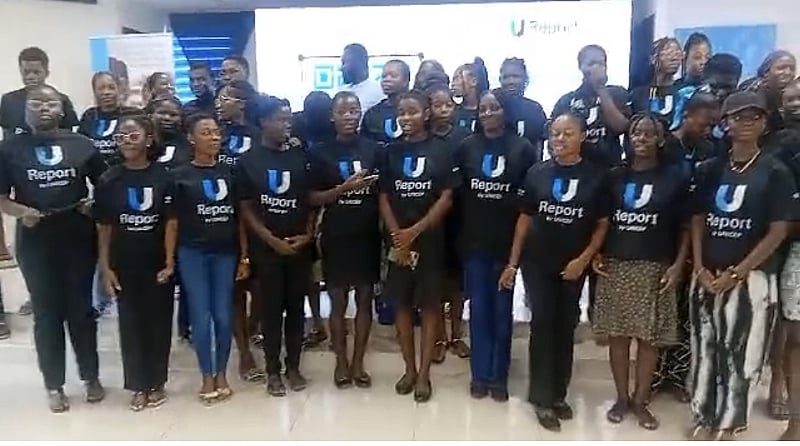The digital age has brought unprecedented connectivity and opportunities for young people, but it has also opened a Pandora’s Box of online threats. A recent UNICEF U-Report poll paints a stark picture of this reality in Ghana, revealing that nearly half of the young people surveyed have experienced online violence, with a majority of them suffering emotional distress as a consequence. This alarming statistic underscores the urgent need for heightened awareness, education, and proactive measures to ensure the safety and well-being of young people in the digital realm. The lack of comprehensive understanding regarding the diverse forms that online attacks can take contributes significantly to this vulnerability.
The U-Report poll, conducted via platforms like Facebook Messenger, WhatsApp, and SMS, served as a timely reminder on Safer Internet Day 2025 of the crucial importance of safe online spaces. Engaging over 1,000 young Ghanaians, the poll provided a valuable snapshot of their experiences and highlighted the pervasiveness of online violence. The responses underscore the need for a multi-faceted approach to address this growing problem, encompassing education, legal frameworks, reporting mechanisms, and a shift in online culture.
UNICEF’s Data Communication Officer, Benjamin Dadson, stressed the organization’s commitment to protecting young people online. He advocated for the integration of cybersecurity education into the national curriculum, spanning from basic to tertiary levels. This education would equip young people with the digital literacy skills and knowledge of their online rights necessary to navigate the digital world safely. He emphasized the importance of familiarizing young people with Ghana’s Cybersecurity Act 2020, a vital tool in combating cybercrime, yet one that remains largely unknown to many. Furthermore, he encouraged young people to utilize available reporting channels, such as the 292 hotline, to report cyber-related issues and hold perpetrators accountable.
Proactive measures are crucial in preventing online abuse before it occurs. Dadson advised that children should be educated about online risks and safe digital practices before they are granted access to digital devices. This preemptive approach can significantly reduce the likelihood of them falling victim to online predators and harmful content. By equipping young people with the necessary knowledge and tools, they can become empowered agents in their own online safety.
Amiya Halder, UNICEF’s Youth Engagement Officer, highlighted another significant finding of the poll: a substantial number of respondents not only experienced online violence themselves but also knew someone else who had. This pervasive nature of online violence emphasizes the need for a collective effort to foster a safer and more respectful online culture. Halder advises caution in online interactions and sharing of information, emphasizing that while reporting systems exist, a fundamental cultural shift is needed in how we interact online. The U-Report platform itself exemplifies UNICEF’s dedication to providing young people with a voice and empowering them to address issues affecting their lives.
The Safer Internet Day event, organized by UNICEF, brought together key stakeholders, including Ghana’s Cyber Security Authority, AT Ghana, and young student panelists, to discuss the challenges of online safety and the profound emotional toll online violence takes on its victims. The personal experiences shared by the young panelists illuminated the real-world impact of cyberbullying, online harassment, and exposure to inappropriate content. One student, Sylvia Anderson, shared her near-miss with an online scam, highlighting the ever-present risks in the digital space. Her story serves as a cautionary tale and a testament to the importance of vigilance and critical thinking while navigating the online world. This crucial dialogue among stakeholders is a vital step towards fostering a safer digital environment for Ghana’s youth.


